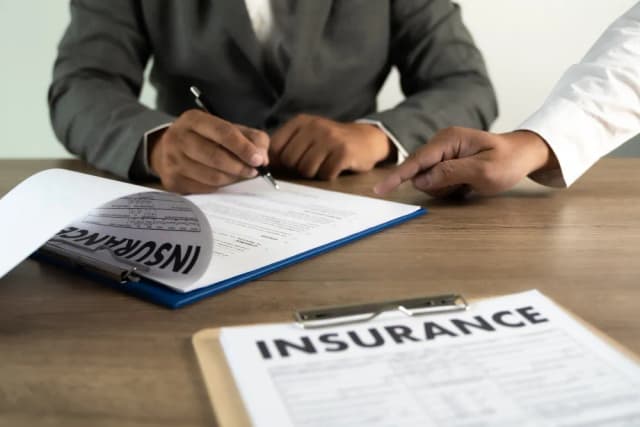How Pharmacies Help with Auto Accident Prescriptions and Recovery

Being involved in an auto accident can be both physically and emotionally overwhelming. The aftermath often involves managing pain, inflammation, and recovery from injuries, all of which may require medications prescribed by a healthcare provider. In this stressful time, pharmacies play a crucial role in helping individuals manage their medications and support their recovery process.
At Farmington Drugs, we understand the challenges that come with recovering from an auto accident. From prescription medications to ongoing medication management, we are here to ensure that you get the care you need during your recovery. In this blog post, we will explore the role of pharmacies in supporting auto accident recovery, the types of prescriptions you may receive, and how our pharmacy can help you manage your recovery effectively.
What Happens After an Auto Accident?
Auto accidents can lead to a wide range of injuries, from minor bruises to more serious conditions like fractures, sprains, whiplash, or head trauma. After the initial medical evaluation and treatment, your healthcare provider will likely prescribe medications to help you manage pain, reduce inflammation, and prevent infection.
While medications are just one part of the recovery process, they play an important role in making you comfortable and speeding up healing. Common prescriptions after an auto accident may include pain relievers, anti-inflammatory drugs, muscle relaxants, and antibiotics for wounds. Pharmacies are the key resource for filling these prescriptions and offering ongoing support throughout your recovery.
How Pharmacies Assist with Auto Accident Prescriptions
Pharmacies like Farmington Drugs provide several essential services to help manage auto accident prescriptions and assist with recovery. Here's how we help:
1. Fast Prescription Fulfillment
When you are recovering from an auto accident, getting your medications in a timely manner is essential. Farmington Drugs ensures that your prescriptions are filled quickly and accurately. Whether it’s pain management medications or anti-inflammatory drugs, we work efficiently to get your medications ready, so you can start your recovery without unnecessary delays.
2. Expert Medication Counseling
After an auto accident, you may receive multiple prescriptions for different types of medications. It’s important to understand how to take each medication correctly to avoid complications or adverse effects. Farmington Drugs offers medication counseling to guide you through the process. Our pharmacists will explain:
-
The correct dosage and timing for each medication
-
Any potential side effects to be aware of
-
How to manage missed doses
-
Whether your medications should be taken with food or on an empty stomach
By providing clear, detailed counseling, we help ensure that you are taking your medications as prescribed and that you understand the role each medication plays in your recovery.
3. Refill Reminders
During your recovery, you may need to take medications for an extended period, especially for pain management or inflammation. Farmington Drugs offers refill reminders to ensure you never run out of your prescribed medications. Our team will notify you when it’s time to refill your prescriptions, helping you stay on track with your treatment plan without any interruptions.
4. Medication Synchronization
If you are taking multiple medications for your recovery, it can be difficult to keep track of when each medication needs to be refilled. Farmington Drugs offers medication synchronization, aligning your refills so that all your medications are ready for pickup at the same time. This makes it easier to manage your prescriptions and stay organized during your recovery.
5. Pain Management Support
Pain relief is one of the most important aspects of recovery after an auto accident. Depending on the severity of your injuries, you may be prescribed pain relievers such as NSAIDs or opioids (for short-term use). Farmington Drugs offers a variety of pain management options, including topical creams, over-the-counter medications, and prescription drugs, and can help you determine the best course of action to manage your pain effectively.
Our pharmacists will also educate you on how to avoid overuse of pain medications and provide alternative strategies for pain management, such as applying heat or cold therapy, physical therapy, or other non-pharmaceutical options.
Types of Medications Prescribed After an Auto Accident
Depending on the nature and severity of the injuries, your healthcare provider may prescribe a combination of medications. Here are some common categories of medications you may receive after an auto accident:
1. Pain Relievers
Pain management is often the first step in recovery. After an auto accident, you may be prescribed:
-
Over-the-counter pain relievers like acetaminophen or ibuprofen to manage mild to moderate pain.
-
Stronger prescription medications like opioids (only for short-term use) for severe pain following more serious injuries like fractures or surgery.
-
Topical pain relievers like creams, gels, or patches to apply directly to the area of pain.
Your pharmacist will help you understand the best way to use these medications and avoid complications, such as opioid dependence or gastric irritation from NSAIDs.
2. Anti-Inflammatory Medications
After an accident, swelling and inflammation are common responses to injury. To reduce inflammation and prevent further damage, your healthcare provider may prescribe:
-
NSAIDs (nonsteroidal anti-inflammatory drugs) like ibuprofen or naproxen.
-
Steroid medications in the form of pills, injections, or topical creams.
Farmington Drugs can help you understand when to take these medications, how often, and what potential side effects to monitor for, such as stomach irritation or fluid retention.
3. Muscle Relaxants
If you have muscle strains or spasms from the accident, you may be prescribed muscle relaxants to relieve discomfort and restore mobility. These medications work by helping your muscles relax, reducing spasms and stiffness.
Our pharmacists will provide guidance on the best way to take these medications to minimize side effects, such as drowsiness or dizziness, which can affect daily activities.
4. Antibiotics for Wounds
If your auto accident resulted in cuts, abrasions, or more serious injuries that break the skin, your doctor may prescribe antibiotics to prevent or treat infection. It’s important to follow the prescribed course of antibiotics to prevent complications and promote healing.
Your pharmacist will explain the importance of finishing the full course of antibiotics, even if you start feeling better, to ensure that the infection is fully treated and does not return.
How Farmington Drugs Supports Your Recovery
At Farmington Drugs, we are here to support you throughout your recovery from an auto accident. From quick prescription fulfillment to personalized medication counseling, we ensure that you have the medications you need to recover safely and effectively.
We also offer:
-
Home delivery services for patients who cannot visit the pharmacy in person.
-
Medication synchronization to align all your refills.
-
Ongoing support and guidance to help you manage your pain and medications effectively.
Our goal is to make the recovery process as smooth as possible, providing you with the tools and support you need to return to your regular routine with minimal stress.
Final Thoughts
Recovering from an auto accident requires a comprehensive approach, and medication plays a key role in ensuring a speedy and successful recovery. Farmington Drugs is here to support you by providing expert advice, managing your prescriptions, and offering convenient services like medication synchronization and home delivery.
If you’ve been in an auto accident and need help with your medications or recovery process, contact Farmington Drugs today. Our pharmacists are here to assist you every step of the way.





